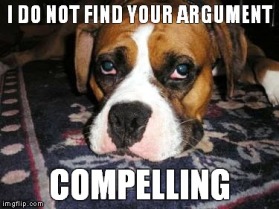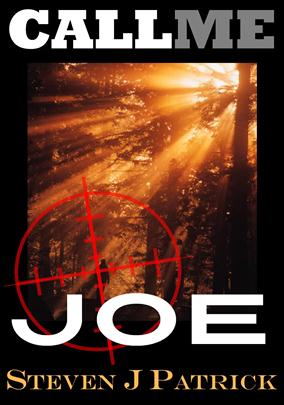


 I’m astounded.
I’m astounded.
Really. Have been for going on eight years, now. Back when I started The Pour Fool, I figured that, in five-six years, maybe a hundred people would wind up reading this every month. And I was happy with that goal. When I wrote the first review, I thought that the potential audience might be something like 25 people, 23 of whom would read it just to tell me what a jackass I am. Fast forward to 2016, and The Pour Fool, between here and seattlepi.com, is read by over five thousand times that number, monthly. I’m humbled and touched and baffled and ever more determined to make damned sure that this bloglet remains exactly what I envisioned, in the first place: a forum with NO negative reviews of any small winery, brewery, or distillery, every single word honest, and a means of telling people about those beverages that are truly exceptional, not merely good. I don’t write it to be clever, to peddle snark, or impress anyone. I know I’m smart and clever and if that seems vain, so be it. I do NOT require that any feeding of my sizeable ego come from this blog. I treasure the folks who entrust me with the time to read it and am eternally grateful.

Mickey genuinely does not care what you drink.
So, why – given all that – would I pause here, twice annually, and tell people to, in effect, stop reading The Pour Fool?
I do this roughly twice a year, accompanied by pictures of my dogs and nice scenery and a meme or two because A) I like pictures with my rants and B) finding photos on a theme of “self-reliance” or “beverage weenies” tends to send Google Images dancing across the room like a Hotpoint dryer. I tell people that they do not need nor should they embrace the whole idea of wine/beer/booze “experts”. Not even me. I know: shocks me, too. But the reason is simple…
You do NOT need them.

At some point, unbeknownst to me, it appears that my dog, Edgar, and my cat, Bonnie, eloped.
You have in your possession, right this minute, all the knowledge and sensory aptitude you will ever need to figure out what’s good and what’s not…for you. That which you find applealing and enjoyable and a good value and great tasting may very well be total crap to the guy sitting in the next cubicle but, for your own drinking enjoyment, you have everything you need to make the perfect choices: your brain and your tongue.
No, I am not oversimplifying and I am not dumbing anything down. This post was motivated by a recent and frenzied convergence of dozens of people with whom I have an online relationship, writing things that are rooted deeply in some antiquated notion that there are Universal Absolutes that apply to all evaluation of their beers, wines, or booze faves. I participated in a discussion, last week, in which a notable and respected beer writer opined that he was put off by all these different kinds of beers; all the stylistic variations and what he considers wrong-headed misinterpretations of styles. He took specific aim at the Black IPA, otherwise known as the CDA – Cascadian Dark Ale. He never mentioned the CDA but claimed that calling something “Black” as attached to a style of ale properly called “India PALE Ale” makes no sense. And, in one sense, he’s right. Maybe some name like “India Dark Ale” would fix his problem but somehow I suspect it wouldn’t. Most people who waste valuable air, blood, and minutes bitching about well established things they have zero hope of influencing wouldn’t consider the problem fixed unless they could summarily waive it totally out of existence. I can’t speak for him, of course, but as the conversation centered on the idea that we don’t need all these different styles of beer, I feel safe in saying that he wishes the whole notion would just…go away.

My cat, helping me write.
Later that same day, I was asked to comment on that most rancid vampire of a wine argument: Does California Pinot Noir have any legitimate basis for existing or should God appear from out of the clouds and tell all those CA Pinot freaks to knock it the heck off? For those immensely fortunate folks who don’t know this whole lame-ass argument, many wine “experts” (and I use that term very loosely because it deserves to be used that way) feel that California has the “wrong” climate for growing Pinot Noir grapes, never mind the indisputable fact that saying a whole state has a “wrong” climate for anything is suggesting that the entire state has exactly the same climatic conditions…which is ridiculous. That myopic little proposition is no more valid in California than it is in any major wine-producing region, be it CA, Oregon, or Burgundy, in France – the grape’s three major growing regions – or Washington, Argentina’s Mendoza Valley, Canada’s Okanagan, or Piedmonte in Italy. This triple-headed debate has been rolling fecklessly on for decades, ever since Pinot Noir became a Thing, and it basically breaks down into Oregon saying California makes Pinot that’s “too big”, Burgundy laughing behind their hands at Oregon “wannabes”, and California being roundly trashed by the other two.

Standard response to beverage snots.
This dung sundae of stupid questions about beverages was topped off with a fat, rotted cherry: A publication in Scotland which contacted me for a quote on why Scotch is the “real Whiskey” and Bourbon is a bastardized imitation.
Oy vey.
Friends, I beg you…I PLEAD with you…DO NOT allow yourself to become so narrow-focus and rigid that you begin to think that arbitrarily dismissing ANY style or region or appellation or variation is somehow correct. In beverages – as in most matters of taste, from movies to cars to the best way to trim your nails – there really is no such thing as “wrong:”. There very much IS such a thing as “wrong, for ME” and that it precisely what this post is about.
People are going to try, with increasing frequency and desperation, to sell you on apps that supposedly tell you what wines or Whiskeys or beers are “best” and if you opt into one of those methods, you will probably use it and it may even work. But you are absolutely guaranteed to lose one of the most exciting and joyous and motivating aspects of the exploration of beverages; the aspect that led almost every beverage writer and critic I’ve ever met, myself very much included, to become fascinated enough to do this crazy job, in the first place: The sense of discovery and shocked surprise of buying a bottle of wine or beer or booze you never heard of before and opening it to discover that, wonder of wonders, it’s absolutely sublime.

Gratuitous Savannah photo
Here’s an ironclad FACT that you can trust, in a whole world full of notions and lies and rationalizations: Every single idea that has ever evolved into an established, accepted, and worthwhile style or category of beverage began as a notion that those not involved in its creation claimed, loudly and consistently, was “wrong”, blasphemy, silly, a bastardization, or an affront to the whole culture of _________(fill in blank). EVERY good thing began as a reviled idea. Those beer geeks who were lamenting the existence of all these “unnecessary” beer styles forgot that the IPA, Bourbon-Barrel Stout, ESB, Barleywine, or Lager began as either a roundly ridiculed experiment or, in fact, an accident. The first sour beers came about by pure chance, when a misplaced barrel of ale soured naturally, was later tasted, and someone said, “Hey! Not bad!” There is even a current and easily provable example of this: Deschutes “Jubel 2015”, an ice beer that came about when someone broke into the Deschutes keg room, one winter night, and tried to make off with a cask of Jubelale, Deschutes’ astounding winter seasonal. Apparently, these aspiring burglars didn’t realise how freakin’ seriously heavy a 15.1 gallon keg of beer is but they gave up about twenty feet outside the door and pushed the keg into a snowdrift. The brewery staff found it, frozen solid, thawed it, and tried it. Like the German Eisbiers that are made roughly that same way, it was strong and concentrated and wonderful and the Jubel Reserve Series was born.

Amarone grapes/from damolivini.com
The wine Italians call Amarone came about when some lots of grapes developed Noble Rot, partially dried into fat raisins, and an adventurous winemaker wondered what the wine would taste like if he went ahead and fermented the grapes until dry, instead of just making them into the usual dessert wine. Madeira came about when casks of wine were accidentally left out in the sun and got cooked. The venerable IPA happened at all because hops are a natural preservative and British breweries, trying to get beer from Portsmouth to Bombay, packed the barrels with hops, which raised the alcohol levels, and resulted in a bitter, lovely, hoppy surprise for those beer-starved British Colonial diplomats. ALL of these idea were ridiculed when first proposed and many for decades afterwards. And today…well, where would the beer world be without our knee-jerk IPA?

My own fave Black IPA, “Back In Black”, by 21st Amendment Brewing
In my semi-learned opinion, the dumbest thing anyone can possibly do is to take their wisdom about anything that’s possible to explore and discover on their own, first hand, from so-called experts…and YES, that absolutely does include me. Here’s how to use a beverage critic, if you feel you really need one. (And let’s get real for a moment: the ONLY real need you have for Robert Parker, BeerAdvocate.com, WhiskyAdvocate.com, Wine Spectator, Steven Tanzer, RateBeer.com, Wine Enthusiast, or yours truly is that we taste thousands more wines, beers, and spirits than you do.) The way you use The Pour Fool is simple: read, find a beverage that appeals to you, try it, see what you think. If you don’t like it, I recommended a BAD wine/beer/whiskey for you. Not “we don’t agree”…BAD. If you try, in the interests of fairness, another beverage I raved about and still don’t like it, then you’ll have proof that our tastes are not alike and that I’m not going to do you any good. At that point, with great regret, I’m sending you on to another writer with my blessings.
“Bad”, just like “Good”, is a matter of YOUR own tongue, brain, and tastes. If you don’t like something, that thing is Bad…but ONLY for you. The next guy might think it’s the finest drink ever and, in that case, IT IS. Conversely, if you read somebody saying that the Black IPA is a stupid idea, get your own first-hand confirmation of that before you write it off and shut the door on the whole genre. You may just LOVE the Black IPA. In which case, that tight-ass who tried to tell you the whole concept is bogus goes by a highly technical term which we in the beverage trade use to categorize those of exceptionally narrow-focus: Asshole.

The wrong Robert Parker. This one wrote some of my favorite mysteries.
Trust NO ONE in the beverage criticism trade until and unless they earn it. Their reputation doesn’t matter. Robert Parker is easily the most prominent beverage critic in human history but a lot of people don’t agree with him on most of what he raves about. He has notable biases: he worships at the altar of Bordeaux, which he regards as the world’s greatest wine region, a view that an increasing number of people – myself absolutely included – don’t buy anymore. Bad Bordeaux is notably, aggressively bad; worse, in many cases, than mediocre wines from other regions. Parker is also the King of The Power Wine; those high-alcohol, dense, heavily extracted wines from Napa and Australia and Mendoza and other regions where warm climates feed fruitiness and alcohol content. Parker is the world’s most influential critic but he has legions of detractors. DON’T confuse popularity with wisdom. The two are only rarely the same.
Finally, the most important item: If you buy anything purely on the basis of scores assigned by a beverage critic, you’re a total freakin’ idiot. Really. Scores are relative terms that are used to gauge to what semi-precise degree a critic thinks a beverage stacks up against other beverages of their type. I hear people say this s LOT: “Oh, I only drink 90 Point wines!” To which my only response is “Great! More for me!” The single most moronic thing a human being can do is to buy a wine or beer or bottle of booze based on reading one number off a screen or a page and then open that stuff and find you really don’t like it at all but drink it anyway and pretend you do, thinking that the problem must be with your palate because it got 93 Points, after all!

Self-serving free ad for my book, available on Amazon.com
I have a list of the best wines I’ve ever tasted in my life. Of the ten wines on it, seven of them did not receive 90 points or higher when they were first reviewed. The number two wine got a high score, across seven major wine publications, of 88 points. And it didn’t cost $300 a bottle. I picked it up for $76. Robert Parker’s notes called it “a nice effort from a respected producer“, damning with faint praise, if I’ve ever read such. The noted Australian critic, James Halliday, gave it an 85 and said he felt “the tannins will probably outlive the wine.”
He was dead wrong within five years.
Look, there is a very simple test of how and where your beverage experience should go: If you’re willing and curious and love the sense of discovering things, facts, sensations on your own and find yourself fascinated by the whole idea that grape juice ferments and turns into something which moves poets to write enraptured verse…if you find the concept of someone taking a sack of grain and a bag of hops and some water and yeast and winding up with a sparkling beverage that’s fun and even occasionally profound…if you are moved by the idea that a mound of spoiled barley is boiled and evaporated and condensed and put into barrels until it becomes the color of strong tea and tastes like caramel and nuts and spices and flowers and citrus…you may have that peculiar twist of sensibility that will reward some focused and leisurely searching and tasting. And remembering that will lead to a lifetime of different, vivid, and constantly renewable thrills that will please you, your family, your friends, and your colleagues, and give your life color, substance, variety, and a world of flavors. But know this: there is no shortcut to discovery. There’s no app that’s going to deliver, with two strokes of your phone screen, the revelations that come with time and interest and learning what YOU like best. Sorry, but that sort of life is okay for people who aren’t all that interested in beverages except as something to swill or impress their friends or get hammered. It is NOT okay for those free spirits who want More. If that’s you…Trust No One, as they say on The X-Files.
They also say another very true and valuable thing…The Truth Is Out There.
Go find it. On your own. Take your time. And, if you can justify it, DO keep reading The Pour Fool. I would genuinely appreciate it.






Sorry, but I am going to keep reading your posts.
Mostly because I already subscribe to being adventurous in picking my beers. I love Gratzer, and Gose, and British Mild (even having brewed one for myself). The folks at my favorite beer/liquor store (who *know* me) actually ask what have I tried lately, and how was it. Yes, there are beers I get often (Green Flash Palate Wrecker, Founders All Day, 4 Hands Alter Ego), but I also love perusing the single bottle rack, and seeing what I haven’t tried yet that looks interesting. And yes, the Stone Tangerine Enjoy By was tasty, but the RuinTen Orange&Vanilla was better, by my taste buds. And there have been beers that I was “Meh” about. But there have also been beers that I was “WOW” about. Try stuff. Even better, find a beer store that has tastings or a mini-bar (like mine), so you can try new stuff without buying it. Explore!!!!!
LikeLike
Pingback: Professor Good Ales » Post Topic » The Fool’s Semi-Annual, Self Destructive Throw-Down on Self-Reliance